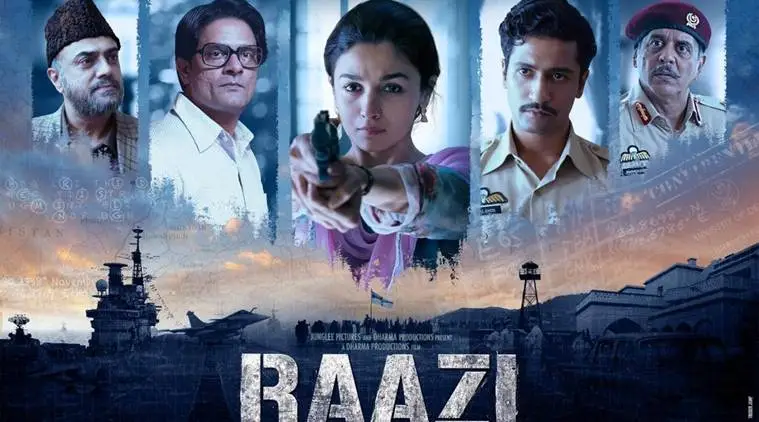Tamanna Drama Review: Tamanna, a Pakistani drama that aired in 2013, captivated audiences with its heartwarming narrative exploring themes of pursuing dreams, overcoming societal pressures, and the enduring power of resilience in the face of personal sacrifices. This review delves into the core elements of the drama, analyzing its characters, exploring its themes, and assessing its lasting impact.

A Story of Unfulfilled Dreams and Second Chances
The narrative centers around Zara (Ayeza Khan), a talented aspiring singer who, due to societal pressures and family obligations, abandons her musical dreams to marry into a conservative household. Years later, she discovers a hidden talent in her daughter, Kiran (Aiman Khan), and sees a chance to fulfill her own aspirations vicariously through her. As Zara guides Kiran through the competitive world of music, she faces challenges, confronts her own past regrets, and rediscovers the importance of pursuing one’s dreams, even if it means defying societal expectations.
Beyond the Cliche Dream Narrative: Unveiling Layers of Complexity
Tamanna goes beyond simply portraying a “second chance at a dream” narrative. It delves deeper, showcasing the complexities and emotional toll of unfulfilled desires. Zara grapples with the weight of societal expectations that forced her to abandon her passion, the internal conflict of wanting to support her daughter while fearing she might face similar challenges, and the bittersweet joy of witnessing her daughter pursue the dream she could not. This layered portrayal allows viewers to understand the emotional depth of her journey, empathize with her struggles, and celebrate her strength in supporting her daughter’s aspirations.
Sacrifices and Regrets: The Ripple Effect
The drama effectively portrays the ripple effect of one individual’s sacrifices on their loved ones. Zara’s decision to give up her dreams not only impacts her own life but also influences the choices she makes for her daughter. This exploration highlights the importance of considering the long-term consequences of personal decisions and the potential impact they can have on future generations.
Navigating Societal Pressures: Beyond Stereotypes
Tamanna delves into the complexities of navigating societal pressures, particularly for women in conservative societies. Zara faces disapproval from her family and society for pursuing music, highlighting the limitations often placed on women’s choices and aspirations. However, the drama avoids portraying these societal pressures as monolithic entities. Characters who support Zara’s and Kiran’s dreams showcase a shift in societal perspectives and the importance of individual voices challenging traditional norms.
Performances that Evoke Empathy and Admiration
The success of the drama hinges on the compelling performances delivered by its cast. Ayeza Khan portrays Zara’s journey with remarkable depth, showcasing her emotional vulnerability, her unwavering love for her daughter, and her determination to support her dreams. Aiman Khan delivers a heartwarming performance as Kiran, capturing her youthful enthusiasm, dedication to music, and the challenges she faces as a young artist.
A Catalyst for Conversations and Societal Reflection
Tamanna serves as a catalyst for conversations and societal reflection. By portraying the consequences of stifling individual dreams and the importance of pursuing personal aspirations, the drama encourages viewers to:
- Challenge societal norms that limit individual choices, particularly those related to women’s roles and aspirations.
- Support and encourage individuals, especially young people, in pursuing their dreams regardless of societal expectations.
- Advocate for open communication within families to foster understanding and encourage individuals to express their dreams and aspirations freely.
Beyond Second Chances: A Celebration of Perseverance
Despite the challenges faced by the characters, Tamanna ultimately celebrates the power of perseverance and the importance of pursuing one’s dreams, even if they are delayed or achieved vicariously. Zara’s journey, while bittersweet, showcases her unwavering support for her daughter and her own personal growth as she overcomes past regrets and embraces a life where she indirectly fulfills her musical aspirations. This message resonates with viewers facing similar challenges, encouraging them to persevere in the face of adversity, hold onto their dreams, and find fulfillment in supporting the dreams of their loved ones.
A Deeper Look into the Characters’ Motivations
Tamanna goes beyond simply portraying characters in black and white. It delves into their complexities, allowing viewers to understand their motivations and empathize with their struggles on a deeper level.
Zara’s Journey: Beyond Second Chances
While Zara embodies the spirit of overcoming regrets, the drama explores her motivations beyond simply “having a second chance.” She grapples with the internal conflict of balancing her own unfulfilled desires with the need to guide and support her daughter. She experiences moments of self-doubt, questioning her own abilities to help Kiran navigate the industry she could not enter, and battles the fear of potentially pushing her daughter into a career path that might lead to similar disappointments. This nuanced portrayal highlights the emotional complexities involved in supporting loved ones’ dreams while confronting one’s own limitations and past choices.
Kiran’s Aspirations: Beyond Talent
Kiran’s character is not simply defined by her talent and passion for music. The drama showcases her initial struggles with self-confidence and stage fright, highlighting the emotional challenges young artists face in pursuing their dreams. Additionally, the drama portrays her journey of self-discovery, as she explores her own musical identity and navigates the pressures of balancing her passion with personal and academic obligations.
Supporting Characters: Beyond Stereotypes
The supporting characters in Tamanna play crucial roles in enriching the narrative and offering diverse perspectives. Zara’s supportive friends highlight the importance of having a reliable support system that encourages individual pursuits despite societal constraints. Conversely, characters who perpetuate traditional expectations and societal biases showcase the ongoing challenges and resistance faced by individuals defying limitations and pursuing unconventional paths.
Exploring Cultural Context: Beyond Universality
While the themes of pursuing dreams, overcoming societal pressures, and supporting loved ones resonate universally, Tamanna offers a glimpse into specific cultural nuances. The drama portrays the influence of deeply ingrained societal expectations regarding gender roles and career choices within a Pakistani social context. It highlights the specific challenges faced by aspiring female artists and the potential disapproval they might encounter from family and society. This cultural context adds depth to the narrative and allows viewers to understand the characters’ motivations and the societal pressures they face within their specific cultural setting.
Beyond Societal Reflection: A Call for Individual and Collective Action
While the drama encourages individual reflection and challenging traditional expectations, it also subtly advocates for individual and collective action to promote a more supportive environment for dreamers. By showcasing the transformative power of perseverance and the positive influence of supportive individuals, the drama encourages viewers to:
- Advocate for educational and career guidance initiatives that encourage young people to explore their talents and pursue their own aspirations.
- Support initiatives that promote gender equality and challenge discriminatory societal norms that limit opportunities for women, particularly in traditionally male-dominated fields.
- Embrace open dialogue within families to encourage children to express their dreams and aspirations freely, fostering an environment of support and understanding.
A Reminder of the Power of Support and Legacy
Despite the challenges faced by the characters, Tamanna ultimately offers a message of hope and the power of support. Zara’s unwavering support for her daughter and her own personal transformation, while bittersweet, showcases the importance of encouraging dreams and fostering creative expression. This message resonates with viewers facing similar challenges, encouraging them to support the dreams of loved ones, embrace their own potential for growth, and leave a lasting legacy of encouragement and empowerment for future generations.
In Conclusion: A Thought-Provoking Drama with Lasting Impact
Tamanna is a captivating drama that offers a nuanced exploration of unfulfilled dreams, sacrifices, and the power of resilience. The drama’s complex characters, thought-provoking themes, and exploration of societal pressures leave a lasting impact on viewers. Its enduring legacy lies in its ability to spark conversations about challenging societal norms, promoting individual agency, and celebrating the unwavering human spirit in pursuing one’s dreams, even through unconventional means.
Share this content:













+ There are no comments
Add yours